|
Today, the city of multicultural Melbourne continues to be a
meeting place where people from all walks of life gather to exchange
knowledge, share stories, celebrate success, ponder the challenges they
face, and, importantly, enjoy each other’s company. The ACTA 2014
Conference continued this tradition and was a great example of what
happens when people get together. From the outset, the Organising
Committee planned to make it easy for delegates to meet and talk, both
formally and informally, throughout the 4 days. We felt that what really
counts for many people are the connections they make with others while
sharing ideas, and listening to one another.
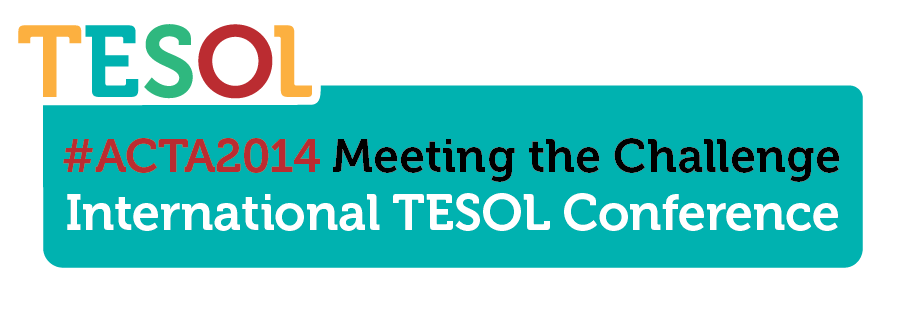
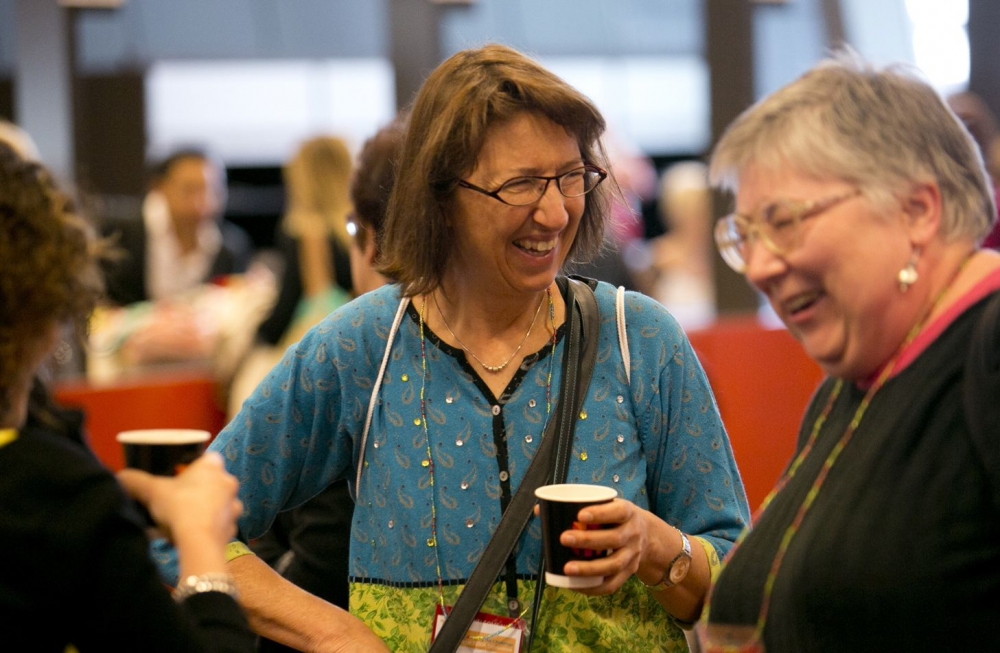
The Australian Council of TESOL Associations (ACTA) is the
umbrella group of the eight state and territory associations in
Australia, and it holds a conference every 2 years on a different part
of the continent. In 2014, it was the state of Victoria’s turn to host,
with the state association, VicTESOL, responsible for making it happen.
Dr Alan Williams took on the role of convenor and with his extensive
experience in TESOL provided expert guidance and leadership to the
Conference Organising Committee team throughout the preparations as well
as during the event. The planning began more than 2 ½ years prior to
the opening session, which took place on the evening of Tuesday, 30
September, at the Melbourne Convention and Exhibition Centre.
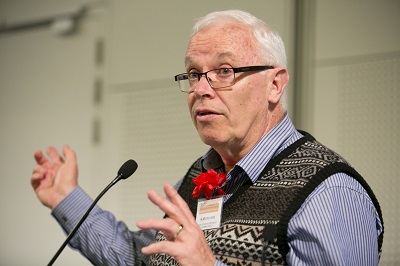
The opening keynote address was given by Professor Viv Edwards,
from the University of Reading in the UK. She set the tone for the
conference by presenting a series of fascinating vignettes drawn from
many different settings, including Bengali-, Urdu-, and Chinese-speaking
children in UK primary schools; African American students in the United
States; and Chinese teachers of English on courses in higher education.
She used these to explore important current challenges in TESOL.
Days two and three included workshops, symposia, and papers
from more than 130 dedicated presenters. Keynote speakers over these 2
days came from different parts of the globe, inspired us with their
ideas, and got us thinking about TESOL and language related issues in
new and challenging ways.
On Day two, Professor Chris Davison, (University of New South
Wales, Australia) skillfully articulated the various challenges involved
in assessing language in the content areas and in supporting
teacher-assessors with variable levels of language knowledge and skills
and assessment literacy. Later that day, Professor Joe Lo Bianco
(University of Melbourne, Australia) spoke about the shifting roles of
English in South East Asia and discussed moral, political, and
pedagogical dilemmas that arise from the multiple presences of English
in several settings in this region.
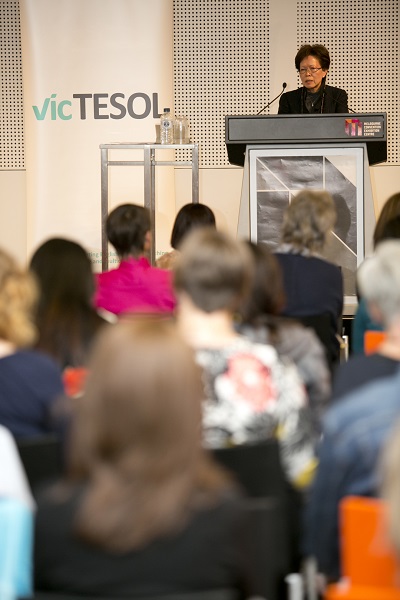
On Day three, Professor Amy Tsui, (University of Hong Kong)
provided a comprehensive overview of recent developments in language
policies in Asian countries to meet the challenges posed by
globalization. She also explored what ESL teachers need to be aware of
as they engage in helping students acquire ESL competence in the context
of bilingual education. Also on Day three, Professor Ester de Jong
(University of Florida, USA) examined the role of multilingualism to
prepare (mainstream) teachers for working with bilingual learners. She
discussed how principles for quality education for bilingual learners
apply in multilingual settings and considered the implications for
language teacher preparation for diverse primary and secondary
classrooms.
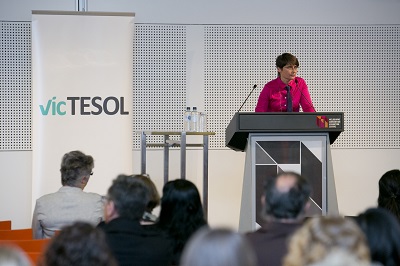
Our final keynote speaker for the conference was Ms. Belinda
Duarte, a Wotjobaluk woman with extensive professional experience
working on boards and in managerial roles with young people; Aboriginal
communities; and sport/health and pathway programs in education,
training, and employment. She is currently the director of the Korin
Gamadji Institute, which provides leadership, accredited training, and
career pathway programs for young indigenous people. Ms. Duarte inspired
us by asking us to consider: What are the common threads that unite us
and that define Australia? What are the opportunities that exist to
build a strong contemporary Australia founded in lineage and the
identity of who we are today?
More information about each of the keynotes along with
presentations for many of the other presenters at the conference is
available on the ACTA
website.
Day four offered delegates a chance to undertake visits to
sites in Melbourne that provide resources and run programs of interest
to teachers and others working with learners from a range of language
and cultural backgrounds. The Language and Multicultural Education
Resource Centre, the Australian Centre for the Moving Image, and the
Immigration Museum offered some great sessions to delegates who enjoyed
the opportunity to venture out from the conference venue and learn about
these great resources.
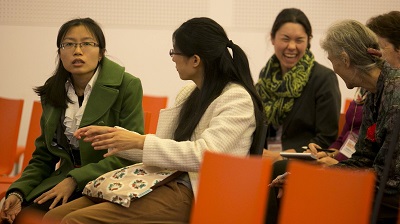
The evaluations from delegates included many comments about the
friendly and social “vibe” of the conference. One of our favourite
comments came from a first-time delegate to the ACTA conferences, a
teacher who said: “Amazing experience—my first one and it's all shiny
and dazzling and I admit, I have so much to take back to my school and
think about.” Overall, the 2014 ACTA conference in Melbourne was judged
to be a great success. We look forward to the next ACTA conference in
April 2016 in Perth, Western Australia and we hope to see you
there!
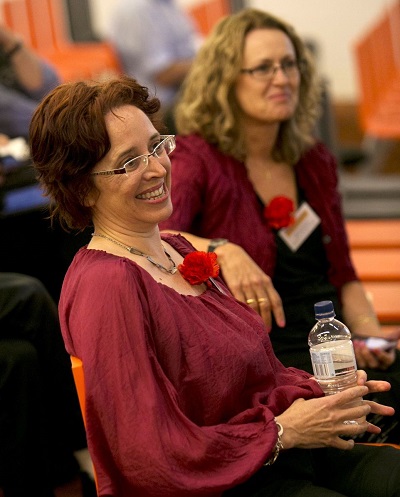
Dr Shem
Macdonald is a lecturer in language and
learning and has many years experience as a TESOL teacher and teacher
educator. He is a member of VicTESOL
and was part of the ACTA2014 Conference Organising
Committee. |

